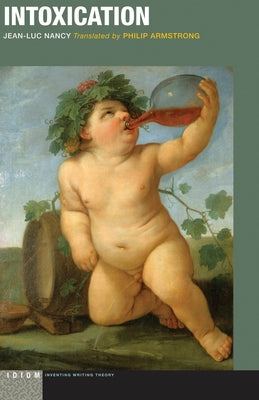Fordham University Press
Intoxication
Intoxication
Couldn't load pickup availability
From Plato's Symposium to Hegel's truth as a "Bacchanalian revel," from the Bacchae of Euripedes to Nietzsche, philosophy holds a deeply ambivalent relation to the pleasures of intoxication. At the same time, from Baudelaire to Lowry, from Proust to Dostoyevsky, literature and poetry are also haunted by scenes of intoxication, as if philosophy and literature share a theme that announces and navigates their proximities and differences.
For Nancy, intoxication constitutes an excess that both fascinates and questions philosophy's sober ambitions for appropriate forms of philosophical behavior and conceptual lucidity. At the same time, intoxication displaces a number of established dualities--reason and passion, mind and body, rationality and desire, rigor and excess, clarity and confusion, logic and eros. Taking its point of departure from Baudelaire's categorical imperative to understand modernity--"be drunk always"--Nancy's little book is composed in fragments, quotations, drunken asides, and inebriated repetitions. His contemporary "banquet" addresses a range of related themes, including the role of alcohol and intoxication in rituals, myths, divine sacrifice, and religious symbolism, all those toasts to the sacred "spirits" involving libations and different forms of speech and enunciation--to the gods, to modernity, to the Absolute. Affecting both mind and body, Nancy's subject becomes intoxicated: Ego sum, ego existo ebrius--I am, I exist--drunk.Author: Jean-Luc Nancy
Publisher: Fordham University Press
Published: 12/01/2015
Pages: 72
Binding Type: Paperback
Weight: 0.25lbs
Size: 8.30h x 5.40w x 0.30d
ISBN: 9780823267736
About the Author
Jean-Luc Nancy is Distinguished Professor of Philosophy at the Universite Marc Bloch, Strasbourg. Among the most recent of his many books to be published in English are Corpus; Dis-Enclosure: The Deconstruction of Christianity; The Truth of Democracy; Adoration: The Deconstruction of Christianity II; Corpus II: Writings on Sexuality; The Pleasure in Drawing; Identity: Fragments, Frankness; After Fukushima: The Equivalence of Catastrophes; and, with Frederico Ferrari, Being Nude: The Skin of Images (all Fordham).


